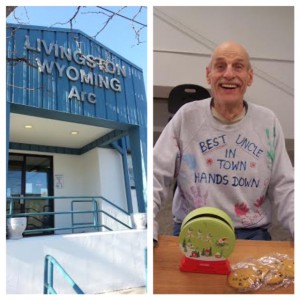Putting the Person Before Their Disability
This post is part of diversity series for Progressions.
Advocacy is one of the six pillars in the PRSA Member Statement of Professional Values in the PRSA Code of Ethics. As public relations professionals, it is our duty to support those who may need our skills most in whatever way we are able. Using our abilities, we can serve very diverse groups of people, including people with disabilities.
According to the U.S. Census Bureau, in 2010, 19 percent of citizens, or approximately 56.7 million people, have a disability. A fifth of the population may seem like a very large number, but most disabilities easily may not be noticed — we may be unaware that a person even has one.
Disabilities can be a sensitive topic, and openly talking about them may make some people uncomfortable. Learning the basic etiquette about how to react to a new situation when it comes to a disability is the start to understanding, and eventually, advocating. The U.S. Department of Labor’s Office of Disability Employment Policy offers great insight on how to properly refer to and interact with a person with a disability.
As public relations practitioners, we may have coworkers or clients who have a disability. Unintentionally using a politically incorrect name to reference a person with a disability could damage your personal reputation as well as the reputation of those whom you represent.

In the last few years, I have spent a lot of one-on-one time with people who have various disabilities. I worked for my local Chapter of The Arc, an organization that services people with intellectual and developmental disabilities, including autism spectrum disorders, cerebral palsy and epilepsy. The Arc creates opportunities for people with disabilities who may not have had access to them before, such as educational programs and even a job. At my university, I tutor students with disabilities through the Office of Accessibility Services. These experiences have made me more aware of different types and degrees of disabilities. More importantly, I have learned that no matter what, the person always comes before their disability and should never be defined by it.
Whether you are representing a client, working side by side with someone with a disability or even just taking part in a local awareness event, there is always something you can do to advocate for individuals who have a disability. Their and many others’ situation could be viewed as disabled, or more appropriately, differently abled.
At the end of the day, it is our duty as public relations professionals to be aware of different disabilities and their respective etiquette. This will allow us to best utilize our advocacy abilities for anyone with a disability, who could use our expertise most.
How will you become an advocate for those with a disability?
Becca Mullin is a senior at West Virginia University, majoring in public relations and Spanish. She is the current PRSSA vice president of external relations of her Chapter at West Virginia University. Follow her on Twitter @Becca_KMullin, or connect via her LinkedIn account.
